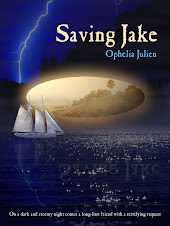When I was senior in high school, a new girl transferred into our class. She was new to the area, new to the school, and ended up sitting next to me in homeroom. We introduced ourselves and, unsurprisingly since it was me, we wound up conversing about the supernatural. She told me that the Romanian language has fourteen different words for "vampire." She was ahead of her time: although she smelled overwhelmingly like Patchouli and wore flowery, gypsy-looking clothes until her school uniform came in, she had a thing about fanged beings already. Well, then again, vampires never really go away, do they? Figuratively, literally-unless staked or left in the sun, and even in terms of literary fashion. Vampires are always with us. What Bram Stoker has wrought, huh?
At any event, I never forgot the idea that a language could have fourteen different words for the same concept. Rather like finding out that the Eskimo people have so many words for snow. (This has been considered a myth, recently, one based on the research and book written by anthropologist Frank Boas. However, a study done by an anthropologist at the Smithsonian says that there may be as many as 53 words for snow in the native tongue of the Canadian Inuit. At least, according to an article in the Washington Post that popped up when I googled "Eskimo Words for Snow.")
So one time, lacking nothing better to do, (okay, looking for a blog idea) I looked up the word "ghost" in my Roget's Thesaurus. My version of the reference book gave me a list of twelve different words, including two I had never heard of before. I was familiar with spirit, shade, apparition, wraith, phantom, etc. But who ever heard of eidolon or manes? If you know either or both of these two words, I bow to your much superior vocabulary. I had to go to the dictionary, however, after finding these in the thesaurus.
Eidolon (I-do-len, accent on second syllable) means a phantom or apparition, according to my American Heritage Dictionary. It has its roots in the Greek word for form or shape.
Manes ((May-nez or Ma-nayz) is basically the revered spirit of someone who has died, possibly even deified as a minor god. This is from the Romans, and trust the Romans to make it more complicated: this is a plural noun used with a singular verb. Okay. (I'd probably use the first pronunciation for fear that any listener might think I was referencing the sandwich condiment, if I used the second one.)
I think it's interesting that there could be fourteen different words for vampire in the Romanian language, but that we have twelve different words for ghost in English. There may be more; my dictionary is a college student edition as opposed to the huge two-volume tome that requires a magnifying glass. Still, twelve words is pretty impressive.
And while my dictionary gives me two definitions (of nine) that refer to a ghost being the spirit of a dead person, my own personal definitions remain 1. (noun) Something I would rather not see in the mirror and 2. (noun) Something I never want to see by my bed.






I've come across the word Eidolon before - in some fantasy book with a supernatural edge. Although I think they used it to describe specifically spirits from a demon realm. And I was certainly pronouncing it wrong in my head, so thanks for including pronunciation!
ReplyDeleteAlso, I think the only thing worse than a ghost in the mirror is a ghost in my bed.
True that! I have had experiences centered around my bed, but have never had one get into bed with me. Although I know someone who has. Not something I'd want to experience first hand.
ReplyDelete